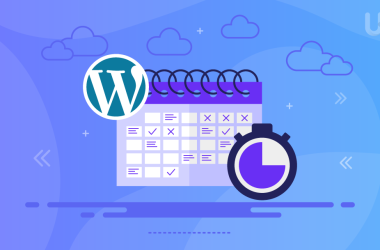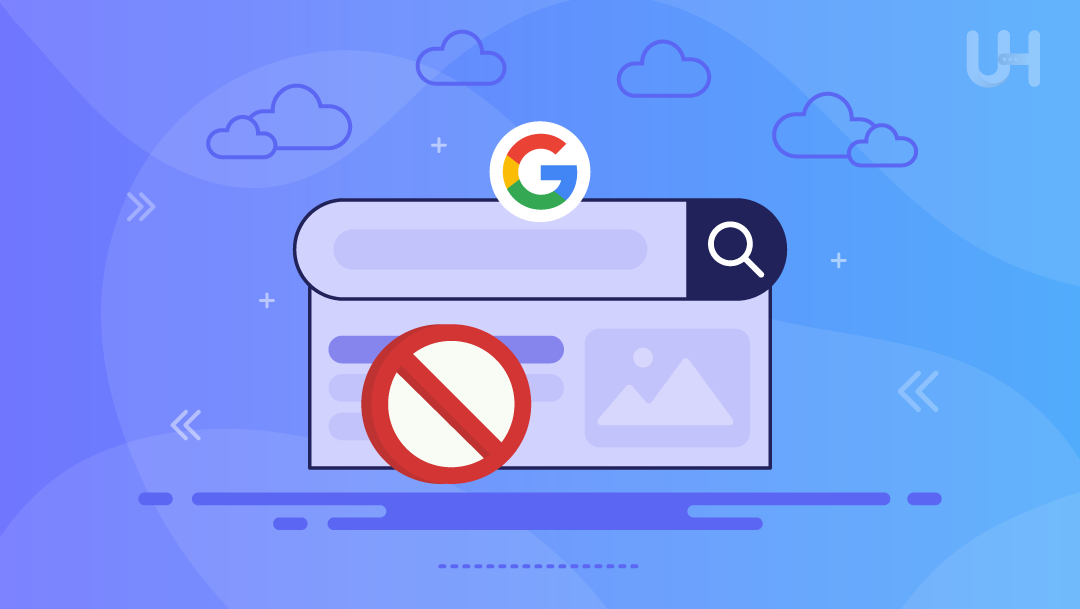Data privacy management is more important today with digitalization. Customer information is collected on websites, mobile applications, social media, and online transactions that create data exchanges. People trust these firms with sensitive information such as names, addresses, and payment details. However, this fast-increasing data creates a high chance of misuse and hacking with unauthorized access to the sensitive data stored in the firm. As a result, the privacy problem grows, and the customer expects the company to handle their data responsibly. At the same time, privacy regulations like GDPR in Europe and CCPA in California enforce strict rules on how businesses manage personal information.
Privacy management is a solution that helps businesses handle data privacy in an organized way. It has processes, tools, and policies that ensure data is collected, stored, and shared with safety. Privacy management also helps companies stay compliant with legal requirements and avoid heavy fines. For instance, companies must enable users to control their data, such as access or deletion rights. With privacy management practices, businesses will be able to protect customer trust, reduce risks, and generally improve their reputation. It also ensures that companies remain competitive in an evolving digital landscape where data security is at the top of the list.
What is Privacy Management?
Privacy management ensures the safe and sound management of personal data. It entails the development of policies and tools for protecting sensitive information from misuse, leaks, and unauthorized access. Corporations use privacy management to ensure data is kept safe and the legal rules are followed. It is a continuous process, that allows business websites hosted on DDoS-protected Virtual Private Server to increase their trust coefficient while avoiding privacy risks.
How Does Privacy Management Protect Data?
Privacy management helps businesses track what data they collect and how they use it. This includes customer names, emails, payment details, and other personal information. It ensures that this data is only used for the right purpose and is not shared without permission. By securing sensitive data, companies can prevent hacking attempts, data leaks, and other risks. Additionally, privacy management ensures that companies control who can access personal data. It reduces the likelihood of errors or human mistakes that may expose private information. Tools like Anon Vault help businesses enhance their digital privacy & security by providing encrypted storage and advanced data protection solutions. It also helps organizations respond to requests from users regarding their data, such as deleting or updating information.
Why is Privacy Management Important for Every Business?
Privacy management applies to all industries that deal with customers’ data. Whether it’s a retail shop, healthcare facility, financial company, or IT firm, all businesses have to protect user data. For instance, eCommerce sites manage customer’s payment information and hospitals manage patients’ medical reports. Without the proper management of privacy, the industries are at legal risk, and they lose the confidence of their customers.
Online businesses also have to adhere to global privacy laws. Companies have to protect user data according to the rules of GDPR, CCPA, and HIPAA. Privacy management ensures that businesses follow these rules, avoid penalties, and stay competitive in the digital age. By adopting privacy management practices, businesses can safeguard data and improve their reputation across all sectors.
Why is Privacy Management Important?
Privacy management is important because it enables companies to handle customer’s data responsibly. This helps in protecting sensitive information, follows the legal rules, builds trust, and reduces risks. In this overly dependent world on digital machines, privacy management keeps businesses safe and compliant with data breaches already common nowadays.
Protection of Sensitive Data
It guards sensitive data against leaks and breaches. Companies collect personal information like names, emails, payment details, and medical records. If such data is not handled securely, it falls into the wrong hands. Hackers steal data for fraud, identity theft, or other illegal purposes. By having sound privacy practices in place, unauthorized access to a business’ systems is denied. Privacy management also tracks who is storing data and sharing data with whom. This reduces accidental leaks due to human error or weak security. Privacy problems can make customers trust companies less; for instance, domain privacy protection is a must to maintain strong trust among the company’s customers.
Legal Compliance
Data protection laws are followed by businesses through privacy management. The CCPA, GDPR, and HIPAA are some of the regulations that require companies to manage personal data responsibly. These laws set rules on how data should be collected, stored, and used. Businesses that fail to comply may face heavy fines or legal action. Adopting privacy management solutions keeps business firms updated about changes in the law. They do not suffer penalties and can thus comply with legal requirements. In addition, it demonstrates to its users that the business values user privacy, enhancing the reputation of a business firm in the market.
Building Trust
It helps to build trust between businesses and customers. Customers need to know that their personal information is safe if they share it online. When a company mishandles data, the customers lose trust and might take their business elsewhere. When businesses show that they care about privacy, they create stronger relationships with their customers. Transparency in handling data, like informing users about how their data is used, boosts confidence. Trust leads to loyal customers and a better brand image, giving businesses a competitive advantage.
Risk Mitigation
Data handling risk management is minimized with privacy management. Mishandling personal information can lead to security breaches, legal sanctions, and reputational damage for an organization. One security breach can bring about financial losses and long-term business harm. Companies will be able to identify risks that may come with privacy management before issues occur, and then correct them. This can be through restricting access to certain data, encrypting information, and constantly updating security systems. The chances of error or cyber-attacks are therefore low, thus making the business safe for its customers as well.
Secure Websites with Ulta Web Hosting!
Ready to enhance your online privacy and security? Choose a web hosting solution that prioritizes your data protection needs. Discover the secure and reliable options at Ultahost Web Hosting and build a safer online presence today!
Core Privacy Management Components
Privacy management comprises various main components that provide businesses with appropriate ways to treat data responsibly. These core aspects guide organizations about how to obtain, process, and guard personally identifiable information. Adherence to these main best practices by firms ensures observance of the different privacy regulations, as well as the winning back of trust on the part of customers.
Data Inventory and Mapping
The first step in the management of privacy is knowing the data you are collecting. Organizations collect information about customers, for example, their names, e-mails, forms of payment, and preferences. However, a lot of firms do not track where they store this data or how they use it. Data inventory and mapping help companies understand the kind of data they hold and how it flows within their systems. For instance, data may be flowing through websites, apps, customer service tools, and third-party platforms. With data mapping, businesses can easily see where there are risks in sensitive information and take appropriate measures to secure it. This process also keeps companies transparent about their data practices.
Privacy Policies and Notices
Clear privacy policies and notices are necessary for informing users about how their data is handled. A privacy policy explains what information a company collects, why it collects it, and how it protects that data. It also tells users about their privacy rights. Businesses should make their privacy policies easy to read and accessible on their websites. Privacy notices should also be displayed when users share their data, such as during sign-ups or purchases. Transparent communication helps build trust and shows that the company values data privacy and data security.
Consent Management
The management of user consent is an important aspect of privacy management. A company must request permission before collecting personal information. This is particularly important for sensitive data, such as health records or financial details. Consent management tools help businesses track and manage user permissions. These tools let users decide what data they want to share and give them the option to withdraw consent at any time. By respecting user choices, companies can avoid privacy violations and ensure compliance with laws like GDPR and CCPA.
Data Subject Rights
Privacy laws are specific rights that users have concerning their personal information. These rights are called data subject rights. For instance, users can require access to information about themselves, request corrections on the information contained, or the deletion of that information. Businesses must have procedures in place to process such requests without delay. A robust privacy management system allows companies to check the status of user requests, respond promptly, and update their records. Demonstrating respect for data subject rights shows that a company values user privacy and strengthens customer relationships.
Data Security Measures
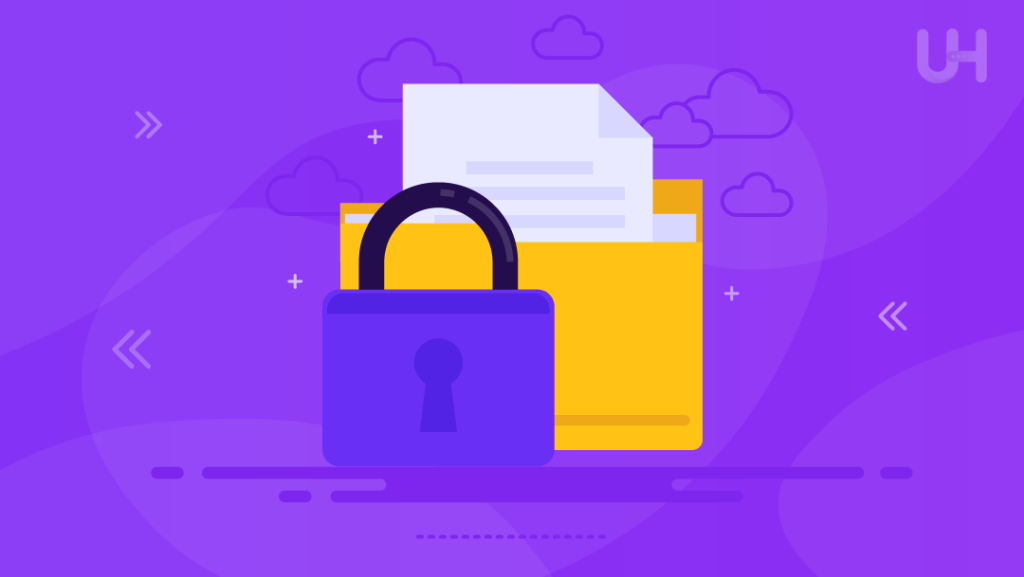
Ensuring protection against unauthorized breaches and cyberattacks is essential for privacy management. The business side should ensure personal information is safely secured through appropriate technical safeguards such as encryption protocols (SSL and TLS Certificate), setting up web application firewalls, and other similar measures in the form of restricted access. Regular security update services, risk analysis, and worker training have diminished privacy risk over time. Implementing protection against unauthorized user data access increases one’s chances of diminishing the incidence of data breaches through proper practices such as having stringent security practice observance that provides compliance assurance in addition to retaining customer trust. As cyber-attacks are happening quite frequently on the Internet, we must improve the security of all the important platforms on the Internet, whether it is website security, fully managed dedicated server security, or cloud security.
Key Challenges in Privacy Management
Privacy management is important, but it comes with several challenges. Businesses must deal with complex laws, track data across various systems, manage third-party risks, and reduce human errors. These challenges make it harder to protect personal data and stay compliant with privacy regulations.
Complex Regulations
One major challenge is keeping up with changing data privacy laws. Different countries have different regulations, such as GDPR in Europe, CCPA in California, and HIPAA for healthcare data in the U.S. Each law has unique requirements, which makes it hard for businesses to stay updated. These regulations are also evolving. New privacy laws are introduced regularly, and existing ones are updated to cover new technologies and risks. Businesses must constantly review their privacy policies and practices to ensure compliance. Without a proper privacy management system, companies may fall behind and face legal penalties.
Data Silos
Data silos make it difficult for businesses to manage personal information effectively. A data silo happens when data is stored in different systems that don’t communicate with each other. For example, customer data may be spread across websites, apps, customer service tools, and third-party platforms. When data is scattered, it becomes hard to track where personal information is stored and how it’s used. This makes privacy management complicated, especially when responding to user requests for data access or deletion. Breaking down data silos and creating a centralized data map is essential for better privacy management.
Third-Party Risks
Many businesses rely on third-party vendors for services like payment processing, cloud storage, and marketing. However, these vendors also handle personal data, which creates privacy risks. If a third-party vendor has weak security practices, it can lead to data breaches and privacy violations. Businesses must ensure that their vendors follow strict privacy policies. This includes reviewing contracts, performing regular audits, and ensuring that third parties comply with privacy laws. Managing third-party risks is crucial for protecting customer data and maintaining trust.
Human Error
Human error is one of the most common causes of privacy breaches. Employees may accidentally share sensitive information, click on phishing links, or mishandle data. Even a small mistake can lead to privacy violations and damage a company’s reputation. Businesses need to reduce human error by providing regular privacy training to employees. Clear guidelines on data handling, secure communication, and access controls can also help prevent mistakes. By building a strong privacy culture within the organization, businesses can minimize the risk of errors that compromise data privacy.
Data Privacy Management Solutions
In this user privacy era, data privacy management solutions are designed to simplify the complex task of protecting personal information. These tools help businesses understand what data they collect, where it’s stored, and how it’s used. They also automate tasks like handling user consent, responding to data requests, and monitoring compliance with privacy laws. Without these solutions, businesses may struggle to manage privacy manually, which increases the risk of errors and legal issues. Privacy management tools ensure businesses handle data responsibly and follow all legal requirements. They also help companies improve their privacy practices by identifying risks and offering solutions to fix them.
Types of Privacy Management Solutions
There are different types of privacy management solutions available, each serving a specific purpose. These tools help businesses manage data privacy more effectively, ensuring compliance and reducing risks. Let’s look at the key types of privacy management solutions.
Data Mapping Tools
Data mapping tools help businesses understand where personal data is stored and how it flows through their systems. These tools create a visual map of data movement across websites, apps, customer service platforms, and third-party vendors. Data mapping is essential because it helps businesses identify risks, such as unsecured data or outdated storage methods. By using these tools, companies can keep track of sensitive information and ensure it’s handled securely. This also makes it easier to respond to user requests for data access or deletion.
Consent Management Platforms
Consent management platforms help businesses handle user permissions for data collection. Privacy laws like GDPR and CCPA require companies to get user consent before collecting personal data. These platforms make it easy to ask for permission and keep records of user choices. These tools allow users to manage their privacy preferences, such as opting in or out of data collection. Businesses can use consent management platforms to update users about their privacy policies and give them control over their data. This transparency helps build trust and ensures compliance with privacy regulations.
Compliance Monitoring Tools
Compliance monitoring tools help businesses ensure they follow data privacy laws. These tools automatically check whether a company’s privacy practices meet legal requirements. They also alert businesses about any changes in privacy regulations so they can update their policies. With these tools, businesses can monitor their data-handling processes in real-time. They can also generate reports to show regulators and customers that they are compliant. Compliance monitoring tools reduce the risk of legal penalties and help businesses stay on top of changing privacy laws.
Incident Response Tools
Incident response tools help businesses manage data breaches quickly and efficiently. A data breach can cause serious damage to a company’s reputation and finances. These tools help businesses detect, respond to, and recover from data breaches in a structured way. Incident response tools provide alerts when a breach occurs and guide businesses on the steps they should take. They help minimize damage by securing affected systems, notifying users, and reporting the incident to authorities. Quick action is essential in a data breach, and these tools ensure businesses are prepared to handle such situations effectively.
Ensure Top-Notch Privacy Management For Your Site!
Get started now and enjoy worry-free hosting with strong data protection for your WordPress site! Protect your data and enhance security today by visiting Ultahost Secure WordPress Hosting.
Best Practices for Effective Privacy Management
To effectively manage privacy, businesses need to implement best practices that help protect sensitive data and ensure compliance with privacy laws. These practices include conducting regular audits, minimizing data collection, and educating employees on privacy protocols. Following these steps reduces privacy risks and strengthens data protection efforts.
- Conduct Regular Privacy Audits: Regular privacy audits help businesses track how they collect and manage personal data. They identify vulnerabilities and enable improvements before risks escalate. Audits ensure businesses stay compliant with ever-changing data protection laws and regulations.
- Implement Data Minimization Practices: Data minimization ensures that businesses only collect the data they truly need. By reducing unnecessary data, companies decrease their risk of privacy breaches. Minimizing data collection also simplifies compliance with privacy laws that require businesses to limit their data usage.
- Train Employees on Privacy Awareness: Employee training is crucial to avoid human errors that lead to privacy violations. Regular privacy awareness sessions keep staff informed on the best practices for handling data securely. Empowered employees are more likely to follow protocols and protect sensitive information from mishandling.
- Adopt a Privacy-by-Design Approach: A privacy-by-design approach integrates data protection into business operations from the outset. By considering privacy when creating products and services, businesses can prevent issues rather than react to them. This proactive approach helps ensure compliance and reduces potential privacy risks.
- Monitor Third-Party Data Handling: Businesses must ensure that third-party vendors follow the same privacy practices. Regularly monitoring third-party data handling ensures that they comply with data protection laws. By auditing their privacy practices, businesses protect themselves and their customers from external risks.
Privacy Management and Compliance with Global Regulations
Below, we explore some of the most important data privacy regulations businesses need to be aware of:
GDPR
The GDPR (General Data Protection Regulation) is a regulation that applies to businesses handling the personal data of individuals in the European Union (EU). It gives individuals more control over their data by requiring businesses to obtain explicit consent before collecting personal information. Businesses must also offer users the ability to access, correct, or delete their data at any time. Furthermore, the GDPR mandates that companies report data breaches within 72 hours. Non-compliance can lead to hefty fines, which makes privacy management crucial for businesses dealing with EU citizens’ data. To ensure GDPR compliance, businesses must implement strong data protection measures and maintain thorough records of how they handle personal data.
CCPA (California Consumer Privacy Act)
The CCPA is a data privacy law that gives residents of California more control over their personal data. Specifically, it grants them the right to know what information businesses collect, delete their data, and opt out of having their data sold to third parties. Moreover, companies must disclose their data practices clearly and, in turn, allow customers to exercise their rights easily. Consequently, businesses must ensure transparency and compliance to build trust with their customers. Under CCPA, businesses that meet certain criteria must implement processes to handle requests from California residents. Failing to comply with CCPA can result in significant fines, so businesses need to ensure that they have a robust privacy management system in place. Regular audits and transparency are key to meeting these requirements.
HIPAA (Health Insurance Portability and Accountability Act)
HIPAA is a U.S. regulation that protects the privacy of health-related information. It applies to healthcare providers, insurers, and any business that handles protected health information (PHI). To comply with HIPAA, businesses must implement policies and practices for safeguarding patient data. They must also provide employees with training on data privacy and conduct regular audits. Privacy management systems can help healthcare businesses meet HIPAA requirements and avoid penalties associated with data breaches or non-compliance.
Other Regional Data Privacy Laws
Apart from GDPR, CCPA, and HIPAA, there are many other data privacy laws around the world. For example, Brazil has the LGPD (Lei Geral de Proteção de Dados), which mirrors GDPR in many ways. Similarly, Canada has PIPEDA (Personal Information Protection and Electronic Documents Act), which governs the collection and use of personal data. In Asia, countries like Japan and South Korea have their own privacy regulations, such as the Act on the Protection of Personal Information (APPI) and the Personal Information Protection Act (PIPA), respectively. These regional laws require businesses to adjust their data-handling practices to meet local privacy standards. For global businesses, maintaining compliance across various regions can be challenging, but privacy management solutions can help streamline the process.
How Privacy Management Benefits Businesses
Privacy management helps businesses stay compliant and build stronger relationships with customers. Furthermore, by focusing on data protection, businesses can not only safeguard sensitive information but also protect themselves from potential legal and reputational risks. As a result, prioritizing privacy management is essential for long-term success and trust.
- Reduced Legal Risks: Privacy management ensures compliance with data protection laws, preventing legal issues. It helps businesses avoid heavy fines and costly penalties associated with non-compliance.
- Improved Customer Trust: When businesses protect customer data, they gain trust and loyalty. Customers feel more secure knowing their personal information is handled responsibly.
- Enhanced Reputation: A business known for protecting privacy enhances its reputation. This positive image attracts more customers and builds a strong brand presence.
- Operational Efficiency: Privacy management streamlines data protection tasks, saving time. Automation of privacy tasks improves business efficiency and reduces errors.
Future Trends in Privacy Management
The following trends will redefine how businesses handle privacy in the coming years.
AI-Powered Privacy Solutions
AI is playing an increasing role in enhancing privacy management. AI-powered tools can automatically detect potential privacy risks, monitor data usage, and ensure compliance with regulations. These solutions are more efficient and accurate than traditional methods, reducing the chances of human error. Additionally, AI can help businesses analyze vast amounts of data to identify patterns and predict potential privacy threats.
Zero-Trust Security Models
Zero-trust security is becoming a core principle in privacy management. Instead, all users, devices, and systems must be verified before gaining access to sensitive data. This model minimizes the risk of unauthorized access by constantly verifying identities and enforcing strict access controls.
Increased Focus on Data Ethics
Data ethics is gaining attention as businesses strive to balance data collection with responsible usage. More companies are realizing the importance of using personal data ethically, ensuring transparency, and respecting user consent. This trend emphasizes not only compliance with privacy laws but also a commitment to doing what’s right for consumers. With growing awareness around data misuse and privacy violations, businesses are focusing on creating ethical data policies.
Global Harmonization of Privacy Laws
As businesses operate on a global scale, there is a growing need for uniform privacy laws. Different countries have different regulations, which can create compliance challenges. The future of privacy management includes efforts to harmonize privacy laws across borders. Global harmonization would make it easier for businesses to comply with data protection laws, regardless of where they operate. Efforts like the European Union’s GDPR have already set a precedent for global privacy standards.
Conclusion
Data privacy management is crucial for businesses to protect sensitive data and comply with regulations. Moreover, it not only helps avoid legal risks but also builds customer trust and enhances reputation. As privacy concerns continue to grow, investing in robust data privacy management solutions becomes increasingly essential. Furthermore, businesses must take proactive steps to safeguard data, ensure compliance, and demonstrate their unwavering commitment to privacy. Therefore, prioritizing privacy management should undoubtedly be a top priority for all organizations moving forward. In conclusion, adopting effective privacy practices is key to thriving in a privacy-conscious world.
If you’re looking for a secure and reliable hosting solution to protect your data, consider Ultahost’s secure VPS hosting services. With robust security features and full control over your hosting environment, it’s the perfect choice for those who value privacy.
FAQ
What is privacy management?
Privacy management involves overseeing and protecting personal data. It ensures that sensitive information is secure and handled.
Why is privacy management important for businesses?
Privacy management helps businesses avoid legal issues and data breaches. It also builds customer trust and enhances the company’s reputation.
What is the role of data privacy management?
Data privacy management focuses on safeguarding personal information. It ensures compliance with privacy regulations and minimizes risks of misuse.
What are data privacy management solutions?
Data privacy management solutions are tools designed to protect sensitive data. They help businesses automate privacy tasks and stay compliant with privacy laws.
How does privacy management benefit businesses?
It reduces legal risks and enhances customer trust. Additionally, it improves operational efficiency and boosts the company’s overall reputation.
What are the key components of privacy management?
Key components include data mapping, consent management, and data security. These elements ensure data is handled securely and ethically.
How can businesses ensure compliance with privacy regulations?
Businesses can implement data privacy management solutions that automate compliance tasks. Regular audits and updates help stay aligned with changing laws.






